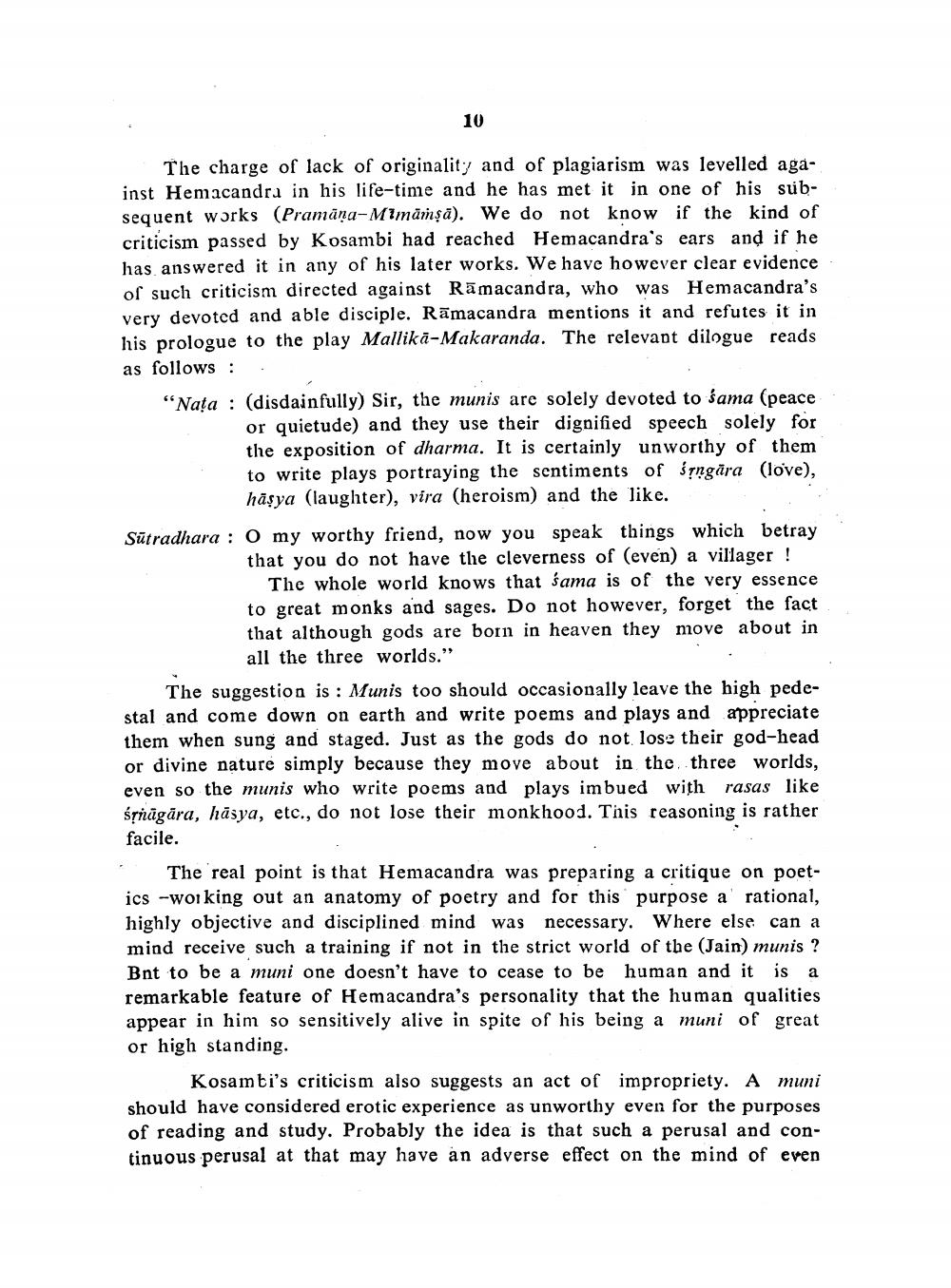________________
10
The charge of lack of originality and of plagiarism was levelled against Hemacandra in his life-time and he has met it in one of his subsequent works (Pramāna-Mimāmşā). We do not know if the kind of criticism passed by Kosambi had reached Hemacandra's ears and if he has answered it in any of his later works. We have however clear evidence of such criticism directed against Rāmacandra, who was Hemacandra's very devoted and able disciple. Rāmacandra mentions it and refutes it in his prologue to the play Mallikā-Makaranda. The relevant dilogue reads as follows: . "Nata : (disdainfully) Sir, the munis are solely devoted to śama (peace
or quietude) and they use their dignified speech solely for the exposition of dharma. It is certainly unworthy of them to write plays portraying the sentiments of singära (love),
hāşya (laughter), vira (heroism) and the like. . Sūtradhara : O my worthy friend, now you speak things which betray
that you do not have the cleverness of (even) a villager !
The whole world knows that sama is of the very essence to great monks and sages. Do not however, forget the fact that although gods are born in heaven they move about in
all the three worlds." The suggestion is : Munis too should occasionally leave the high pedestal and come down on earth and write poems and plays and appreciate them when sung and staged. Just as the gods do not lose their god-head or divine nature simply because they move about in the three worlds, even so the munis who write poems and plays imbued with rasas like śrnāgāra, hāsya, etc., do not lose their monkhood. This reasoning is rather facile.
The real point is that Hemacandra was preparing a critique on poetics -working out an anatomy of poetry and for this purpose a' rational, highly objective and disciplined mind was necessary. Where else can a mind receive such a training if not in the strict world of the (Jain) munis ? Bnt to be a muni one doesn't have to cease to be human and it is a remarkable feature of Hemacandra's personality that the human qualities appear in him so sensitively alive in spite of his being a muni of great or high standing.
Kosambi's criticism also suggests an act of impropriety. A muni should have considered erotic experience as unworthy even for the purposes of reading and study. Probably the idea is that such a perusal and continuous perusal at that may have an adverse effect on the mind of even




